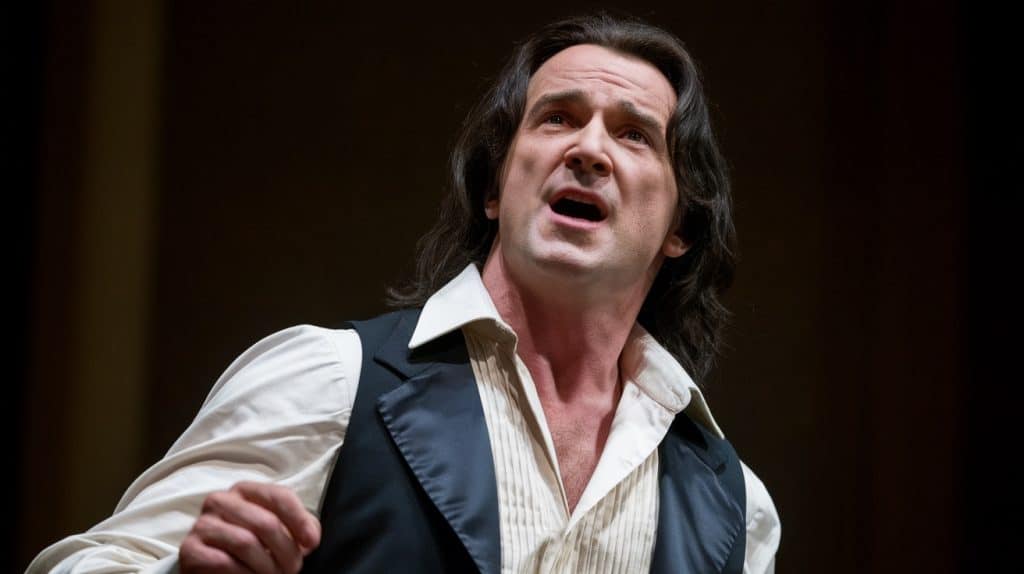Dreaming of the stage, the spotlight, and the applause? Learning how to become an opera singer is a path filled with passion, dedication, and hard work. It’s a path that demands much from aspiring performers, but the rewards are truly extraordinary.
In this guide, we promise to walk you through the essential steps to transform your vocal talents into a professional opera career.
We’ll examine the fundamental skills you need to develop, the education and training required, and how to build experience in this competitive field.
From mastering vocal techniques to understanding different languages and collections, we’ll cover everything you need to know to start your journey toward becoming an opera singer.
Let’s begin this exciting musical adventure together!
How to Become an Opera Singer?
Venturing on the path to becoming an opera singer is an exciting journey that requires dedication, skill, and passion. If you’re wondering how to become an opera singer, here are some key steps to get you started:
1. Start Early with Vocal Training

The path to becoming an opera singer often begins in youth. Starting voice lessons as early as possible, ideally in your teens or earlier, can give you a significant advantage. Early training helps you:
- Build vocal strength gradually.
- Develop proper technique from the start.
- Expand your vocal range safely.
Remember, learning to become an opera singer is a marathon, not a sprint. Consistent, early practice lays the groundwork for a strong vocal foundation.
2. Develop a Strong Foundation in Classical Singing

As you become an opera singer, focus on mastering classical vocal techniques. These include:
- Breath control: Learn to support your voice with proper breathing.
- Resonance: Understand how to project your voice effectively.
- Vocal projection: Practice filling a space with your voice without straining.
Working with a skilled voice coach or mentor is crucial in refining these techniques. They can provide personalized guidance on becoming an opera singer, helping you avoid common pitfalls and maximize your potential.
3. Enroll in a Music Program

Formal education plays a vital role in becoming an opera singer. Many universities and conservatories offer specialized programs in vocal performance or opera. These programs provide:
- Structured curriculum covering all aspects of opera.
- Opportunities to perform and gain stage experience.
- Access to experienced faculty and industry connections.
When choosing a program, look for one that aligns with your goals and offers comprehensive vocal technique and performance skills training.
4. Master Multiple Languages

Opera is an international art form, and language proficiency is crucial for those learning to become an opera singer. Focus on mastering:
- Italian: The language of many classic operas.
- German: Essential for performing works by composers like Wagner and Mozart.
- French: Important for French opera repertoire.
Learning these languages helps you:
- Perform pieces authentically.
- Understand the nuances of operatic literature.
- Connect more deeply with the characters and stories you’re portraying.
Key Steps to Master Opera Singing

As you continue to become an opera singer, it’s important to focus on refining your skills and building a strong foundation. Here are some key steps to help you master the art of opera singing:
Consistent Vocal Training
Learning how to become an opera singer is an ongoing process that requires regular practice and training. To improve your vocal abilities:
- Take voice lessons regularly with a qualified instructor
- Focus on expanding your vocal range safely
- Work on improving your vocal control and stamina
- Practice vocal exercises and scales daily
Remember, consistency is key when learning how to become an opera singer. Try to set aside time for vocal warm-ups and practice even on busy days.
Learn to Read Music
You must become proficient in reading music to excel in opera singing truly. This skill is crucial for anyone wondering how to become an opera singer because it allows you to:
- Quickly learn new operatic scores.
- Understand complex musical structures.
- Adapt to changes in tempo or key during performances.
Developing these skills will make you more adaptable and confident as you pursue your goal of becoming an opera singer.
Build Stage Presence
Opera is a comprehensive art form that combines singing with acting. You must develop a strong stage presence to shine as an opera singer. Here’s how:
- Take acting classes to improve your expressive abilities
- Practice stage movements and gestures
- Work on facial expressions to convey emotions while singing
- Study the characters you’ll be portraying to understand their motivations
Remember, when learning to become an opera singer, you aim to intrigue the audience with your voice and entire performance.
Gaining Experience and Exposure to Better Opportunities

Gaining experience and exposure is important for musicians looking to advance their careers and secure better opportunities. These elements hone their skills and increase their visibility in the competitive music industry.
Participate in Performances
Learning how to become an opera singer requires practical experience. Join school or community choirs, audition for local opera productions, and participate in student recitals.
These opportunities help you perform in front of audiences, collaborate with other musicians, and understand opera staging. Each performance is valuable in your journey to becoming an opera singer.
Audition for Young Artist Programs
Young Artist Programs are crucial for those learning to become opera singers. They offer professional training, mentorship, and performance opportunities. Research various programs, prepare a diverse audition repertoire, and be open to feedback.
These experiences can significantly advance your path to becoming an opera singer.
Attend Workshops and Masterclasses
Workshops and masterclasses are excellent resources for aspiring opera singers. They provide insights from industry professionals, help refine your technique, and offer knowledge about stagecraft and the opera industry.
Actively participate, ask questions, and network with others. These events can provide fresh perspectives that can enhance your journey in learning to become an opera singer.
Taking Proper Care of Your Voice
Maintaining vocal health is essential for singers, especially those with distinctive baritone voices. Proper care combines techniques, lifestyle choices, and regular vocal exercises to ensure longevity and consistent performance quality.
1. Prioritizing Vocal Health
Maintaining vocal health is crucial for those learning to become an opera singer. Stay hydrated by drinking plenty of water throughout the day. Give your vocal cords ample rest, especially after intense singing sessions.
Always warm your voice before singing to prepare your vocal cords for the opera demands. These practices are essential for anyone serious about becoming an opera singer.
2. Avoid Overexertion
Understanding your limits is key to becoming an opera singer. Take breaks when you feel tired to avoid vocal strain, and use proper techniques to protect your voice during long rehearsals or performances.
Listening to your body and voice is an important skill for aspiring opera singers. Remember, becoming an opera singer is a marathon, not a sprint.
3. Seek Professional Guidance
Working with experienced vocal coaches is invaluable for those learning to become an opera singer. These professionals can help you improve your technique and maintain a healthy voice throughout your career.
They can provide personalized advice on vocal care and help you navigate the challenges of becoming an opera singer. Regular sessions with a vocal coach can significantly enhance your journey to becoming a professional opera singer.
Conclusion
Embarking on the journey to become an opera singer is challenging yet rewarding. By starting early with vocal training, developing a strong foundation in classical singing, and pursuing formal education, aspiring performers can lay the groundwork for success.
Mastering multiple languages, gaining experience through performances and programs, and continuously refining skills are crucial steps. Remember that caring for the voice is paramount; proper vocal health practices and professional guidance are essential.
Those who dream of gracing the opera stage can realize their aspirations with dedication, perseverance, and a passion for art. The world of opera awaits those willing to invest time, effort, and heart into this extraordinary musical career.





















